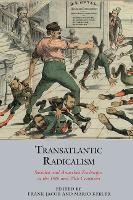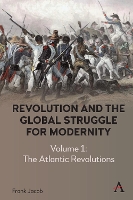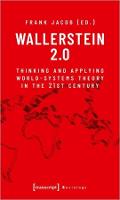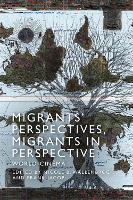Japanism, Pan-Asianism and TerrorismAuthor :
Hardback
Published : Wednesday 30 July 2014
Description
This monograph is the first modern research study in English to provide history of the Amur Society ( known as Black Dragon Society due to a mistranslation from Japanese to English), its genesis, its members and its activities in historical context from 1901-1945. Using original sources, some consulted for the first time, Dr Jacob discusses the Amur Society as a key driving force in Japan's embrace of national expansion and analyses the effect of this ultra-nationalist secret society on Japanese history from before the Russo-Japanese War(1901 ) to the bitter defeat of 1945 and the end of colonial empire, military rule and international aggression . The Amur Society was seen by its enemies as an almighty secret society, one which determined the course of Japanese history from the murky background of Japanese civil and military politics. Founded in 1901 the Amur-Society was aimed at stopping the Russian expansionist ambitions in East Asia and preparing Japan for a war against the tsardom. The members of the society followed a double-sided strategy to achieve this goal. In public they rooted for an anti-Russian mood of the Japanese society by starting a propaganda campaign which consisted of pamphlets and public lectures. In secret their members began spying in Korea, Manchuria and even Siberia gathering information would be of value during the upcoming war with Russia. Although the Russo-Japanese War started in 1904/05 and the Japanese troops gained victory after victory, the diplomats were not able to build on these t victories during the negotiations in Portsmouth, NH where Russia - especially Sergej Witte - won the only Russian victory of that conflict. Although the Kokuryukai( Amur Society) ,due to the conclusion of the war and the Russo-Japanese diplomatic relations in the years after 1905, had lost its raison d'etre it still till 1946. During the years after 1905 the society became more engaged in Korean affairs and tried to accelerate a political unification with Korea and the destruction of Korean cultural and political elites as well as Christian religious practice. After Uchida Ryohei (the leader of the society) was not able to influence Ito Hirobumi -governor general in Korea - he returned to Japan and the Kokuryukai involved in influencing Japanese society via newpapers, books as well as propaganda aimed at army leadership. Their new aim was to influence Japan's pan-Asianism and to force it onto a more expansionistic course. During the Showa period, the Kokuryukai tried to establish an ultranationalist mass movement and founded the Greater Japanese Productive Party (Dai-Nippon Seisanto), but even if it was able to recruit a few thousand members it became not influential mass movement but an open conspiracy against democratic, labour and pacifistic organisations. Terrorism was embraced and practiced against the enemy i.e. fellow Japanese. The early death of Uchida in 1937 marked a startling decline of the Kokuryukai's general influence as even more radical ideas took hold as Japan waged war throughout China then Southeast Asia attacking America and Australia in the Pacific and India in South Asia .
You may also like ...

by
Paperback
28 Apr 2024
Left-of-centre democratic ideologies
€35.09
Extended stock – Dispatch 5-7 days

by
Hardback
12 Mar 2024
Revolutions, uprisings, rebellions
€93.60
Extended stock – Dispatch 5-7 days

by
Paperback
27 Jul 2023
Politics and government
€39.77
Extended stock – Dispatch 5-7 days

by
Paperback
31 May 2023
Films, cinema
€30.41
Extended stock – Dispatch 5-7 days
Reviews